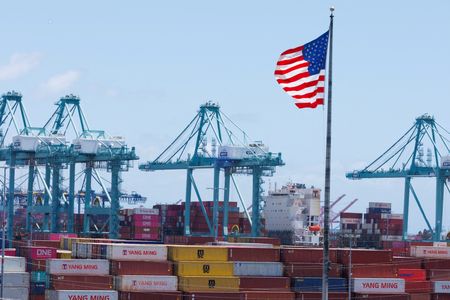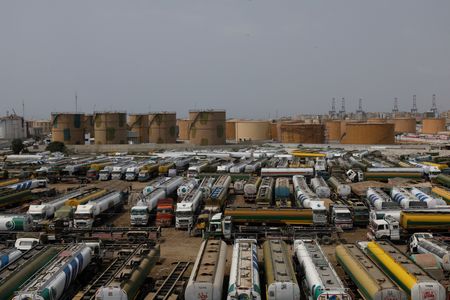By Ahmad Ghaddar and Alex Lawler
LONDON (Reuters) – Eight OPEC+ countries meeting on Thursday will focus debates on how to convince Kazakhstan to stop exceeding its output quota and its plans to compensate for overproduction as the group steps up gradual production hikes, two delegates told Reuters.
Record Kazakh output has angered several other members of the group, including top producer Saudi Arabia, sources have told Reuters. OPEC+ is urging the Central Asian country, among other members, to make further cuts to compensate for excess production.
“Tomorrow’s meeting is just to make the new Kazakhstan minister aware of the importance of meeting his required production and compensating for the surplus,” one of the delegates said. Both declined to be identified by name due to the sensitivity of the matter.
The Kazakh energy ministry and OPEC did not immediately reply to a Reuters request for comment.
Last month, Kazakhstan’s president appointed Erlan Akkenzhenov as new minister of energy after his predecessor was named the head of the country’s newly created atomic energy agency.
Eight members of OPEC+, a group that includes the Organization of the Petroleum Exporting Countries and allies led by Russia, are scheduled to raise oil output by 135,000 barrels per day in May.
The group is expected to proceed with this plan, both sources on Wednesday said, following similar comments on Tuesday from other OPEC+ delegates.
The May hike is the next increment of a plan agreed by Russia, Saudi Arabia, UAE, Kuwait, Iraq, Algeria, Kazakhstan and Oman to gradually unwind their most recent output cut of 2.2 million bpd, which came into effect this month.
OPEC+ also has 3.65 million bpd of other output cuts in place until the end of next year.
This week, Russia ordered the Black Sea terminal handling Kazakhstan’s oil exports to close two of its three moorings, a move which is widely expected to slash the country’s production as a result.
An OPEC+ ministerial committee, with the power to recommend to the larger group changes in production policy, was initially scheduled to meet on April 5, although one source said this may also take place on Thursday.
(Additional reporting by Mariya Gordeyeva; Editing by Tomasz Janowski)










